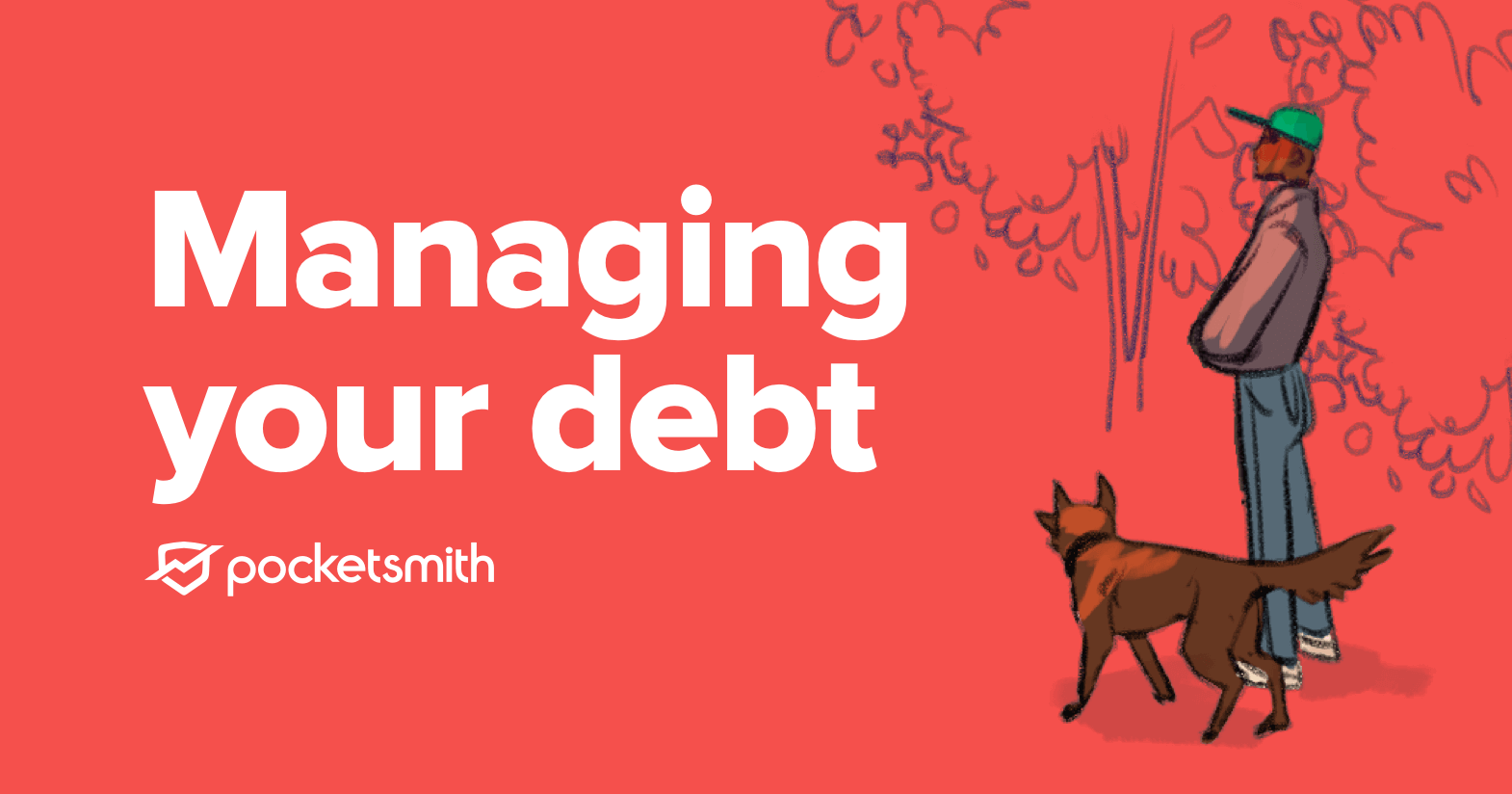
Debt can come in many forms. Credit cards, student loans, and medical costs are some of the most common. Despite its reputation, debt isn’t inherently bad either. In fact, as long as you don’t miss any payments, certain loans can be quite helpful and your credit score may benefit from successful debt management. The tricky part is managing debt effectively so it doesn’t get out of hand. Proper money management is the key to achieving your financial goals, and understanding how to manage your debt is a vital part of that.
Taking on debt can be a slippery slope; loans are an attractive band-aid for unexpected financial issues. Successfully paying off a small debt may then qualify you for a larger one next time. The temptation to take on new debt to have something now, rather than saving up for it, becomes real.
Unfortunately, the nature of debt means you’re usually going to end up paying more in interest over the long run (unless the purchase itself appreciates in value, like a house might). This is especially true for high-interest debts such as credit card debt. Whether you’re looking to get a loan or get rid of one, it pays to know how to manage your debt.
Dealing with multiple lenders can be detrimental not only financially, but also to your mental and physical wellbeing. It’s like a country trying to defend itself on multiple fronts. High interest rates, late repayment fees, and lenders charging from all sides can often lead to a sense of entrapment. Being surrounded by debt makes it difficult to find financial freedom.
Learn how to manage your existing debt with PocketSmith >
Consolidation, in the context of debt, means putting everything in one place so it becomes easier to manage. A common solution to this is a debt consolidation loan.
Debt consolidation loans are designed to simplify your borrowing by merging all your existing debts into one repayment schedule. Often this means the new lender will let you borrow enough money to pay off all your existing debts. After that, you’ll only have one debt and one payment schedule to worry about.
The goal of a debt consolidation loan is to save money in the long run. How much you save depends on your level of existing debt and interest rates at the time. Make sure you do the maths or speak to a registered financial advisor to check whether a debt consolidation loan is right for your individual situation.
Similar to debt consolidation is a balance transfer credit card, which takes your existing credit card balances and puts it onto one card. Balance transfer cards usually have a signup offer of 0% interest for the first 6-12 months. This can be a good idea if you’re struggling to balance paying off multiple cards at once.
Many people find financial freedom by keeping a watchful eye over their income and debt levels. Having multiple incomes and/or multiple debts can be a lot to keep track of. Software like PocketSmith helps to consolidate your personal finances into one easy-to-use app.
Part of managing your debt effectively means avoiding or resisting opportunities to take on more debt. Unless you’re looking at a debt consolidation loan to eliminate multiple debts in favor of one, try not to add anyone else to your list of debtors.
Avoid taking out new debt with the highest interest rates — these include credit cards and car loans. Not spending right up to your credit limit has the added bonus of decreasing your credit utilization ratio. The credit utilization ratio is a metric used by credit bureaus in their credit scoring models that help determine your credit score. Decreasing the ratio can help build a good credit score.
Avoiding increased debt will be a different exercise for everyone. For some, it may mean cutting up the credit cards. For others, it may mean resisting the temptation to upgrade their vehicle. For our friend Amanda, it meant downloading a personal finance app.
The tool to succeed is the same for everyone: a budget. Keeping a budget every month will let you know exactly where you stand in relation to your financial situation. It doesn’t matter how much you earn, it’s about knowing where that money goes and making sure it ends up in the right places.
![]()
If you build your budget and find out you’ve got room to take on more debt, think carefully before doing so. Many savvy budgeters find it better to completely remove existing debt first and then consider whether it’s more financially responsible to save up for the new purchase rather than take on more debt.
Learn how to create a budget in PocketSmith >
Managing your debt will take time, so be prepared for a long-term relationship with your budget. Things may even get a bit harder before they get easier. Over time, however, you’ll become more comfortable managing your money and less stressed about debt.
Learn more about keeping to a budget >
Software like PocketSmith can be used to help you manage your personal finances, including debt. Boost your financial confidence by taking ownership of the way you manage your money. Here’s to your debt-free future!